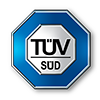Recitals 81 - 90 (MDR)
(81) Any statistically significant increase in the number or severity of incidents that are not serious or in expected side-effects that could have a significant impact on the benefit-risk analysis and which could lead to unacceptable risks should be reported to the competent authorities in order to permit their assessment and the adoption of appropriate measures.
(82) An expert committee, the Medical Device Coordination Group (MDCG), composed of persons designated by the Member States based on their role and expertise in the field of medical devices including in vitro diagnostic medical devices, should be established to fulfil the tasks conferred on it by this Regulation and by Regulation (EU) 2017/746 of the European Parliament and of the Council 25 , to provide advice to the Commission and to assist the Commission and the Member States in ensuring a harmonised implementation of this Regulation. The MDCG should be able to establish subgroups in order to have access to necessary in-depth technical expertise in the field of medical devices including in vitro diagnostic medical devices. When establishing subgroups, appropriate consideration should be given to the possibility of involving existing groups at Union level in the field of medical devices.
(83) Expert panels and expert laboratories should be designated by the Commission on the basis of their up-to-date clinical, scientific or technical expertise, with the aim of providing scientific, technical and clinical assistance to the Commission, the MDCG, manufacturers and notified bodies in relation to the implementation of this Regulation. Moreover, expert panels should fulfil the tasks of providing an opinion on clinical evaluation assessment reports of notified bodies in the case of certain high-risk devices.
(84) Closer coordination between national competent authorities through information exchange and coordinated assessments under the direction of a coordinating authority is essential for ensuring a consistently high level of health and safety protection within the internal market, in particular in the areas of clinical investigations and vigilance. The principle of coordinated exchange and assessment should also apply across other authority activities described in this Regulation, such as the designation of notified bodies and should be encouraged in the area of market surveillance of devices. Joint working, coordination and communication of activities should also lead to more efficient use of resources and expertise at national level.
(85) The Commission should provide scientific, technical and corresponding logistical support to coordinating national authorities and ensure that the regulatory system for devices is effectively and uniformly implemented at Union level based on sound scientific evidence.
(86) The Union and, where appropriate, the Member States should actively participate in international regulatory cooperation in the field of medical devices to facilitate the exchange of safety-related information regarding medical devices and to foster the further development of international regulatory guidelines that promote the adoption in other jurisdictions of regulations that lead to a level of health and safety protection equivalent to that set by this Regulation.
(87) Member States should take all necessary measures to ensure that the provisions of this Regulation are implemented, including by laying down effective, proportionate and dissuasive penalties for their infringement.
(88) Whilst this Regulation should not affect the right of Member States to levy fees for activities at national level, Member States should, in order to ensure transparency, inform the Commission and the other Member States before they decide on the level and structure of such fees. In order to further ensure transparency, the structure and level of the fees should be publicly available on request.
(89) This Regulation respects the fundamental rights and observes the principles recognised in particular by the Charter and in particular human dignity, the integrity of the person, the protection of personal data, the freedom of art and science, the freedom to conduct business and the right to property. This Regulation should be applied by the Member States in accordance with those rights and principles.
(90) The power to adopt delegated acts in accordance with Article 290 TFEU should be delegated to the Commission in order to amend certain non-essential provisions of this Regulation. It is of particular importance that the Commission carry out appropriate consultations during its preparatory work, including at expert level, and that those consultations be conducted in accordance with the principles laid down in the Interinstitutional Agreement of 13 April 2016 on Better Law-Making 26 . In particular, to ensure equal participation in the preparation of delegated acts, the European Parliament and the Council receive all documents at the same time as Member States' experts, and their experts systematically have access to meetings of Commission expert groups dealing with preparation of delegated acts.
